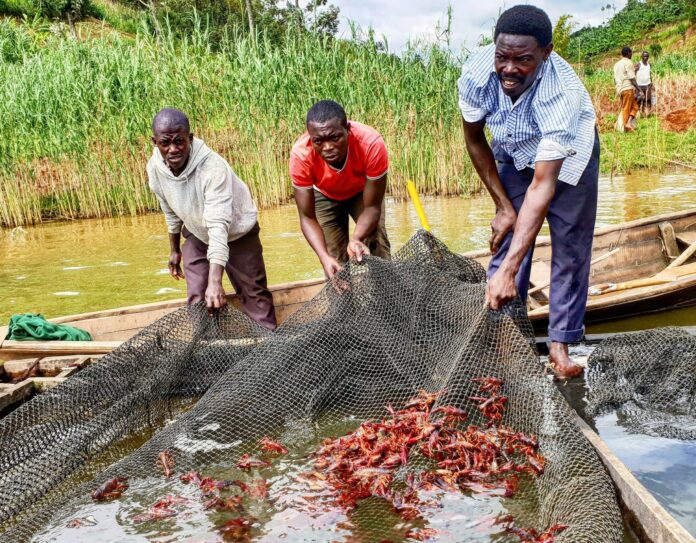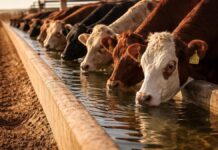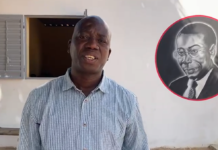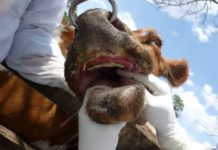
In an effort to improve its aquaculture production, the Rwanda Agriculture and Animal Resources Board (RAB) is aiming to launch a program that will see workers in the country’s aquaculture industry trained on the much-needed practical skills.
The program dubbed farmer field school (FFS) is a step towards achieving the agriculture sub-sector’s goal to transition from subsistence to commercial aquaculture according to the country’s Vision 2050.
This comes at a time investors in the industry are decrying heavy losses due to much theoretical rather than practical skills by workers especially university graduates.
“We are experiencing shortage of skilled workers for our fish farms situated in Kivu and Muhazi lakes and there is need for the government to move faster to establish more fish farming schools to train professionals to help in the industry if we have to achieve our targets,” said Themistocle Munyangeyo, the Managing Director of Fine Fish Ltd, an enterprise operating in Rubavu District’s Lake Kivu.
Marie Nzabahonimana, a fisherman from Rutsiro District also expressed the importance of practical skills which he said will revamp harvests and increase income of all players in the industry. “I aspire to witness an improved and more developed sector in the near future.”
According to Solange Uwituze, the Deputy Director General in charge of Animal Resources Research and Technology Transfer at RAB, the absence of fishing schools is a real challenge faced by aquaculture in Rwanda and there is a candid effort and plan to address it.
“We want to assure players in the sector that the issue would be addressed through the new National Aquaculture Strategy for Rwanda 2023-2035,” said Uwituze.
Boosting fish production
The Rwanda 2023-2035 Aquaculture Strategy aims to boost annual fish production from 4,000 tonnes to 80,620 tonnes through aquaculture by 2035.
“Professional development is indeed a focal point in our efforts with this new strategy,” she said adding that RAB is collaborating with the Rwanda TVET Board, particularly Karongi TVET, to facilitate training programs ranging from three to six months, up to diploma, bachelor’s, and master’s levels.
Expected to kick off in the upcoming fiscal year, FFS will enhance the skills of fish farmers across the country.
The program is a collaborative learning approach that empowers farmers to independently solve problems they encounter in their fishing ventures with an aim of upping yields and income.
Since it was introduced by the Ministry of Agriculture and Animal Resources in 2012, the innovative program has shown promise in driving sustainable development within the industry.







